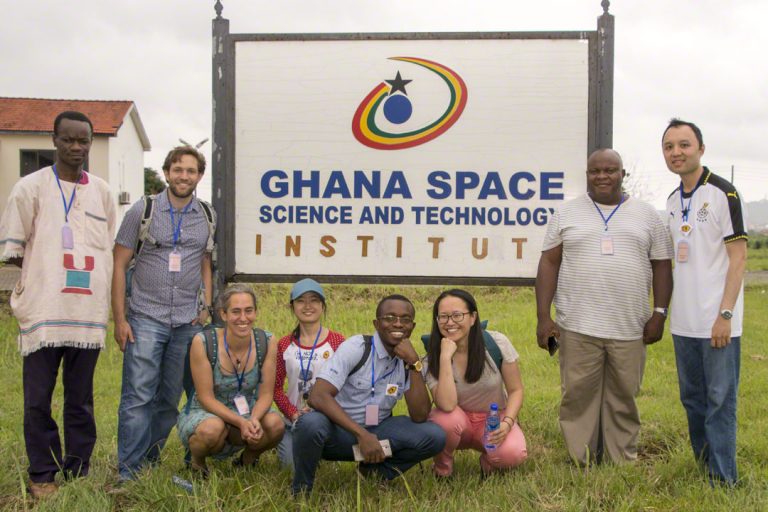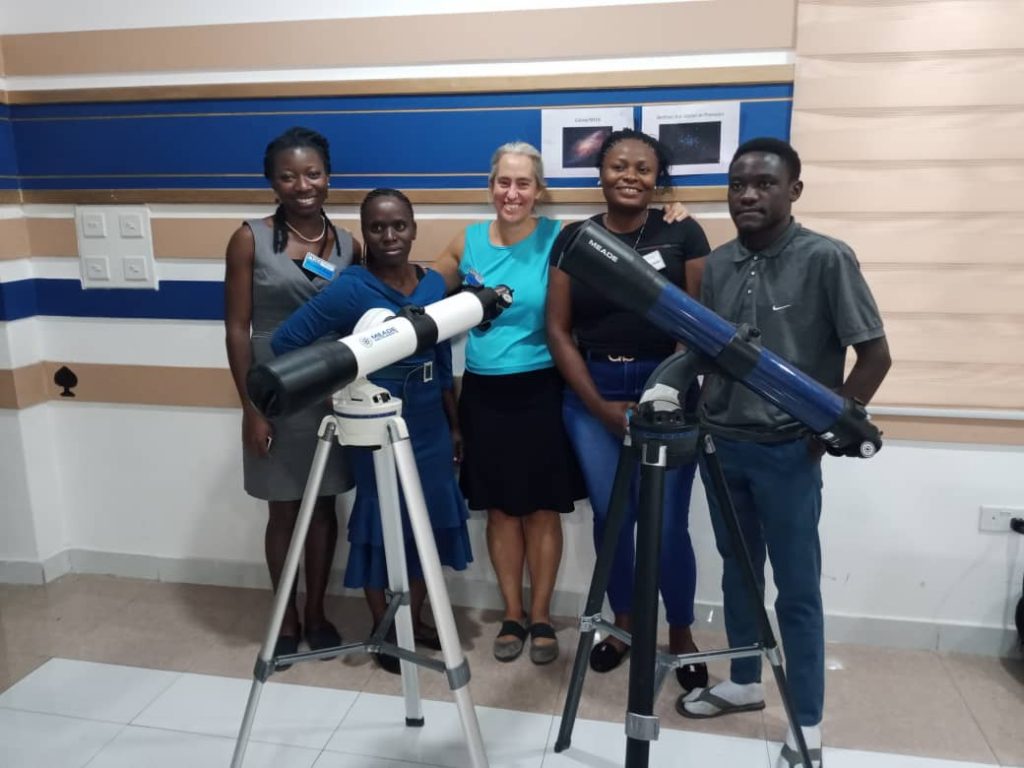In June the International Astronomical Union [IAU] announced the 2024 winners of three IAU prizes — the IAU Astronomy Outreach Prize, the IAU Astronomy Development Prize, and the IAU Astronomy Education Prize. The three awards recognize individuals and organizations who have made outstanding contributions to the fields of astronomy outreach, development, and education.
Linda Strubbe, a former Canadian Institute for Theoretical Astrophysics (CITA) postdoctoral fellow, American Astronomical Society member and founder of Strubbe Educational Consulting, was one of the two recipients of the IAU Astronomy Education Prize.
The award, which is given every three years, distinguishes “professional scientists, educators, science communicators or capacity-builders,” who “have made outstanding contributions to astronomy education, outreach or development”.
Strubbe completed her PhD at the University of California, Berkeley, and a postdoctoral fellowship at CITA, where she researched the tidal disruption of stars by massive black holes in the centers of galaxies.
In 2015, she transitioned her career to science education. Strubbe’s work focuses on the professional development of university instructors teaching in international contexts, especially — North America and Africa. She also specialises in evaluating STEM educational programs and advancing equity and inclusion in STEM.

Together with Bonaventure Okere, the other 2024 recipient of the IAU Astronomy Education Prize, she co-founded and co-directs the Pan-African School for Emerging Astronomers (PASEA). (PASEA’s other two co-directors are U of T alum Jielai Zhang and James Chibueze.)
Strubbe’s design, leadership, and teaching have been central in creating very high-quality educational experiences in PASEA.
Building on Okere’s vision of leveraging the world-class astronomy facilities on the continent, her work draws on a strong evidence base across the educational curriculum, from professional development for PASEA instructors to the evaluation of student learning. The resulting inquiry-based curriculum intertwines teaching content with scientific practices and is highly regarded by students.

The instructors, two-thirds of whom are African, are given specific training in inquiry-based learning, interactive strategies, and group discussion, including through paired teaching. A survey of PASEA alumni indicates that almost all student participants now teach or work in STEM, and 88 per cent said PASEA was very influential for their career choice.
PASEA has now trained some 300 students across 18 African countries, with the sixth school being held in Tunisia this year. The impact of Strubbe and Okere’s PASEA initiative is already enormous and will continue to grow into the future, forging the next generation of science educators and leaders.

